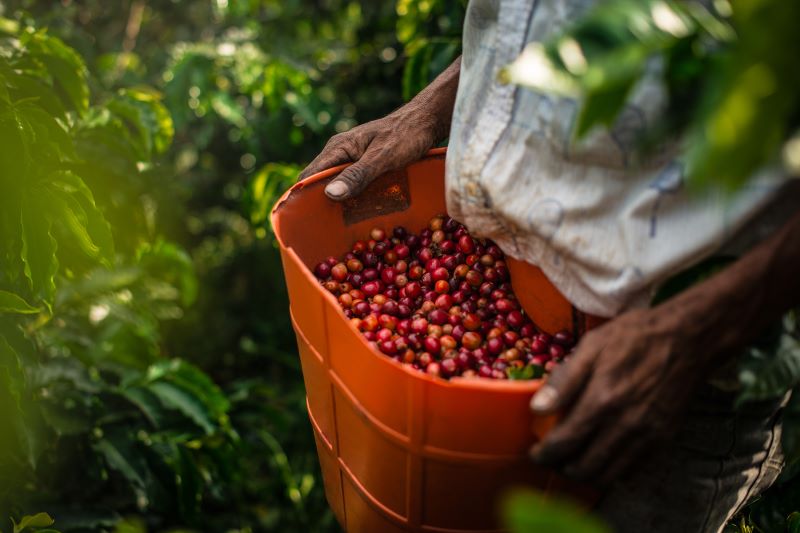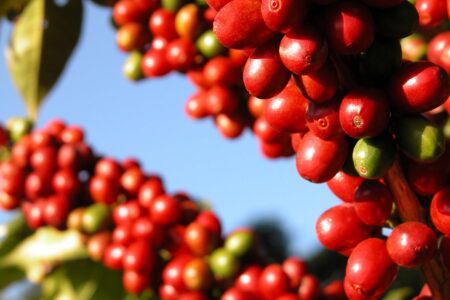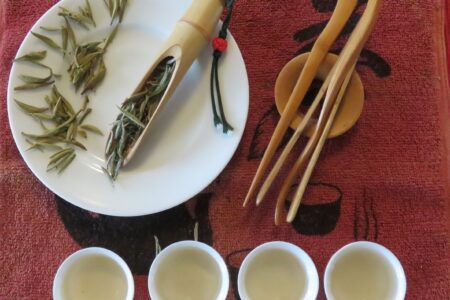Special sustainability section: brands and suppliers

illy supports farms and organisations to transition to regenerative farming techniques. Image: illy
Sustainability is now non-negotiable for forward-thinking brands
Every year, the conversations around sustainability increase, and the pressure is ever-growing from consumers and stakeholders for brands to truly act to futureproof our coffee and tea industries, as well as the planet itself, for future generations. This special section of our annual Sustainability Issue highlights some of the work and projects tea and coffee brands are undertaking to enact long-lasting change and impact. By Kathryn Brand
Efforts at origin
Clipper Teas is the United Kingdom’s first and longest-standing Fairtrade tea partner, values which have been intertwined with the brand since its inception. Clipper shares its mission with Fairtrade to raise awareness of the benefits of sustainable farming for people and the planet, informing its decision to also be certified organic. This year, Clipper launched its There’s Tea, Then There’s GOOD Tea campaign across Europe, aiming to highlight its brand story and show that it takes more than just taste to make good tea, specifically ethical and sustainable growing practices. At Clipper, this means supporting tea estates and smaller farms to become more sustainable, while paying workers fairer wages, including the Fairtrade Premium, which communities can spend in areas they decide are most needed.
Recently, Clipper’s Fairtrade Premium was used to fund an ambulance for a Mozambique tea estate. Over the past three decades, Clipper has contributed an estimated GBP £6.8 million to the Fairtrade Premium, and much of the tea bought by Clipper today is the same as 25 years ago, since when Clipper has supported the farms to become biodiverse and wildlife-friendly. Long-standing support and nurtured relationships with tea farmers is essential to their sustainability.
Sustainability at origin is not only crucial for the continuation and success of tea production, but for the people in the tea growing communities. This is evidenced in DavidsTea’s Nepal Water Project. The Canada-based tea brand recognises that clean water is not just a fundamental human right, but the essence of its product, from nurturing the Camellia sinensis plant, to brewing a cup of tea. DavidsTea has aligned itself with the United Nations Sustainable Development Goal 6, which aims to ensure the availability and sustainable management of water and sanitation for all. DavidsTea has joined forces with Jun Chiyabari, a key partner from which the company sources its Organic Nepal Black Tea, to tackle the clean drinking water issue in Jun Chiyabari Tea Garden in Nepal’s Dhunkuta district. The local government schools, crucial for the education and well-being of the community’s children, suffer from a lack of clean drinking water. This not only hampers the health of the students and staff but also affects their overall educational experience.
The collaboration began during DavidsTea’s 2020 Giving Week, in which it dedicated five percent of all loose leaf tea sales on 28 November to find clean water initiatives in Nepal. Jun Chiyabari then matched DavidsTea’s contribution, allowing it to expand the project to encompass not just three but four schools. In August 2021, Phase 1 was completed: the installation of sustainable water filtration systems in four schools, impacting over 3,200 children and staff. In March 2022, DavidsTea continued its commitment to the project, directing one percent of the proceeds from its Organic Nepal Black Tea to the mission, allowing it to begin Phase 2 in March 2024, through which it is aiming to bring clean water to two additional schools. This latest phase is expected to reach a further 862 students and staff across six schools in seven buildings.
Last year, illycaffè launched the first coffee produced through 100 percent regenerative agriculture. Brasile Arabica Selection Cerrado Mineiro is Regenagri certified, a third-party programme that certifies regenerative agriculture claims. It supports farms and organisations to transition to holistic farming techniques that increase soil organic matter, encourage biodiversity, sequester CO₂ and improve water and energy management. Italy-based illycaffè believes investing in the people who grow coffee is just as crucial in protecting the ecosystem and so funds a number of initiatives that further this goal:
- The Seeds for Progress Foundation helps to build new schools and offers training for teachers in Nicaragua;
- Reforestation in Colombia works to restore native vegetation, clean groundwater and improve the living environments for coffee growers;
- Farmer Field School is supporting women in Rwanda since 2019 when illycaffè financed the acquisition of a coffee plantation and planted around 2,500 certified-quality coffee plants to function as a Farmer Field School for 40 women coffee producers;
- Viveiro de Atitude programme helped build nursery housing for over 100 plant species in Brazil, preserving biodiversity and water resources as well as promoting environmental education in the country.
illy is investing in quality research and collaborating with a research project to: sequence the genome of Arabica coffee to help coffee growers adapt their plants to the changing climate conditions; it is building long-lasting relationships with growers based on knowledge-sharing and sustainable growth; and implementing a new certification protocol for coffee procurement, monitoring supply chains, guaranteeing the quality of the product, and protecting the environment and worker safety.
Pact Coffee has been fundraising reforestation projects and working only with farmers that follow sustainable practices for years, but in 2020 launched Cenicafé 1, a coffee variety developed over 20 years by the Colombian Coffee Growers Federation (FNC). As the world heats up, many Arabica coffee varieties struggle to grow. These warmer temperatures also bring a higher likelihood of disease to coffee plants, plus the conditions that plant-killing pests thrive in. It’s a problem that’s forcing farmers to go higher up into the mountains, causing deforestation and economic hardship. Cenicafé 1 is resistant to a number of fungal diseases, can be grown all over Colombia, and offers a high density of coffee cherries, giving farmers greater harvests on small amounts of land. It has quickly achieved high cupping scores and this year Pact launched its first limited edition Cenicafé 1 from the Buenos Aires farm. UK-based Pact is working to widen the recognition of Cenicafé 1 to increase demand for the variety worldwide and show Colombian farmers that there’s a profitable future in a sustainable variety on their existing farms.
To assess and improve conditions across the global community of coffee growers, Peet’s Coffee has partnered with Enveritas. The non-profit organisation uses technology combining AI and satellite imagery with on-the-ground surveys to: conduct 20,000 sustainability audits of smallholders each year; invest in over 30 different impact projects spanning Central America, South America, and the Indo-Pacific; work with World Coffee Research to provide funding for genetic conservation of coffee; have 24 countries verified by Enveritas for responsible sourcing; and, as part of JDE Peet’s, work towards fully validated science-based targets to contribute effectively to the fight against climate change and be at the forefront of deforestation prevention and restoration.
California-based Peet’s engages with Enveritas each year to evaluate the impacts of its projects: in Guatemala, the company has partnered with TechnoServe to train smallholder coffee farmers in overcoming agronomic and economic hurdles impeding their businesses and livelihoods; in the biodiversity hotspot, Finca Don Bosco, Panama, Peet’s collaborates with Smithsonian Migratory Bird Center to protect migratory songbirds by ensuring canopy cover, tree height, and biodiversity; and Peet’s has constructed the Butterfly School Papua New Guinea Bunum-Wo Estate, serving as educational enrichment and health care learning for nearly 200 young children of the farm’s workforce and the surrounding community.
Despite challenges such as climate change and economic instability, over the past year, 99.7 percent of Traditional Medicinals’ herbs were certified organic, and 30.1 percent were fair-certified. The California-based company advised on the creation of the FairWild standard and Foundation, which sets standards for sustainable wild collections of medicinal plants, ensuring that plant material is harvested ethically, sustainably and transparently. Traditional Medicinals has set a goal of sourcing 80 percent fair-certified herbs by 2030, to which its Fair for Life certification marks significant progress. This year, the company has reinvested over USD $174,000 in fair premiums into source communities, a 10.6 percent increase from the previous year. Traditional Medicinals has invested a further $2 million to origin community projects, local non-profits and certification standards. In Zimbabwe, 4,000 people gained access to safe drinking water, 510 farmers in Madagascar were trained in sustainable agricultural practices, and 2,300 women in Egypt participated in health education.
In-House and the community
Birchall Tea has opened its brand-new fully solar-powered tea factory in Wiltshire, England. Its roof-top solar installation features more than 460 solar panels, which are capable of generating all the clean renewable electricity for its on-site operations. The purpose built, state of the art tea factory generates so much energy, that it even puts power back into the National Grid. In addition to this, in May 2020, Birchall achieved the Carbon Neutral International Standard, which means that all of its products are 100 percent carbon neutral.
Similarly, Equator Coffees has reduced its carbon emissions by 80 percent per roasted coffee batch through its investment in energy-efficient Loring Smart Roasters. Other sustainable practices Equator undertakes in its roastery include donating its burlap coffee bags to local farms, composting its chaff locally, and upcycling coffee excess with Extrafood. For its cafés, the California-based company is always looking out for partnerships and resources to improve its sustainability efforts. In 2023, Equator launched its Too Good To Go programme in five of its cafés, aiming to fight food waste by providing surplus food to customers at a reduced price. Equator plans to expand the programme across as many of its retail locations as possible. It continues to encourage its customers to get their drinks in for-here serve ware and use their own reusable cups in its cafés, offering a USD $0.25 discount for customers who bring their own cups, both of which have seen a significant use increase since 2022. The to-go cups and containers that Equator does offer are 100 percent compostable.
Sustainable packaging has long-been a priority for illy. Its cans and tins are made from recyclable metal, and it has recently launched its new certified ESE compostable coffee pods which come in illy’s three blends: Classico, Intenso and Decaffeinato. illy was also the first Italian coffee company to obtain a B-Corp certification.
Little’s is addressing packaging sustainability by becoming the first instant coffee company in UK supermarkets to go 100 percent plastic free. Its coffee pods and ground coffee bags are fully recyclable while its jars are of UK-made glass and aluminium lids. In 2022, Little’s moved its coffee capsule manufacturing from Europe to the UK so that all Little’s roasting and pod manufacturing is done in its on-site roaster, meaning it can both reduce its carbon footprint and be certain of good practices. As a result, the brand is on its way to being carbon neutral.
Since July 2023, Pact Coffee pouches have all been 100 percent recyclable. By being made from a single material, the bag is much easier to recycle into new plastics, and its low-density plastic design using a high proportion of recycled materials ensures it uses as little new plastic as possible. These bags also fund the ‘this bag saves’ project, which stops plastic bottles from entering our oceans. For every kilogramme of packaging purchased, ‘this bag saves’ recovers and recycles the equivalent of two plastic bottles from Asian rivers. Pact explains it chose this option over ‘compostable’ alternatives because around 90 percent of people in the UK do not have the means to compost at home, and compostable packaging can take years to break down, meaning most ends up in landfill or food waste, where it blocks the recycling process. Pact’s carbon footprint is then offset by SeaTrees, a project which protects and regenerates coastal eco-system by planting and restoring aquatic plants that are highly effective in absorbing carbon.
Fostering a better balance between nature and people is something Traditional Medicinals is working towards, with its Traditional Medicinals Foundation. The mission of the foundation is to help people live consciously connected to nature through two pillars: making herbal education accessible and fostering a mindset of stewardship through interacting with nature and conserving resources.
In 2023, Traditional Medicinals aligned with the Science Based targets initiative (SBTi), aiming to reduce Scope 1 and 2 emissions by 42 percent by 2030, and achieve net zero emissions by 2050. The company also conducted a natural capital impact assessment that enabled it to identify, measure, and value direct and indirect impacts and dependencies on natural capital. The framework is crucial for understanding the dynamic relationships between organisations and the health of the natural world, which critically informs decision-making.

BioSense capsule. Image: AluSense
Suppliers commit to a greener future
As with the brands and companies they work with, suppliers to the coffee and tea industry are also passionate about utilising sustainable practices throughout the supply chain. This dedication to sustainability is reflected in multiple ways such as ethical sourcing, environmental protection, climate adaptation, energy efficiency and waste reduction. Below is a sampling of coffee and tea suppliers, which through their sustainable practices, are contributing to a healthier planet and a more sustainable future. By Aubrye McDonagh Leigh
IMA Coffee is committed to increasing sustainable practices to reduce roasting emissions and test alternative packaging materials, implementing advanced eco-friendly solutions throughout the industrial process to rise to the challenge of coffee sustainability. Over the past few years, IMA’s approach to sustainability has led to the design and adaptation of packaging technologies to effectively handle compostable materials, in collaboration with important partners in the field.
Recently, Italy-based IMA Coffee, in partnership with Minnesota-based NatureWorks, a leading manufacturer of polylactic acid (PLA) biopolymers made from renewable resources, developed a new compostable coffee pod solution compatible with Keurig brewers for the North American market. For the rigid capsule body, NatureWorks was able to combine non-compounded, highly crystalline, and heat resistant Ingeo PLA grades with a refined single-stage thermoforming process to achieve production rates comparable to incumbent polypropylene (PP) capsules. The rigid thermoformed capsule was then combined with a non-woven filter and multi-layer top lidding solution, also made with Ingeo. The use of one primary material through all three components of a coffee pod is more cost effective and offers greater consistency when heat sealing the components together, thus preserving the taste and aroma of the enclosed coffee.
The collaboration between NatureWorks and IMA, bolstered by IMA OPENLab, the group’s network of technological laboratories and testing facilities, laid the groundwork for a new market-ready coffee pod solution. Multiple studies and tests on the new compostable material and its performance throughout the packaging process have led to the proper configuration of IMA’s coffee-pod filling and sealing machines, enabling them to handle the rigid capsule, filter, and multi-layered top lid made of Ingeo PLA biopolymer with high precision. This will facilitate the easy setup of new production lines, thereby offering a turnkey compostable and sustainable solution at high production speeds, ensuring high-quality brewing.
With the world’s largest production capacity for empty Nespresso-compatible aluminium coffee capsules, AluSense products are distributed in over 80 countries. The Belgium-based company offered the first capsule made from 80 percent recycled aluminium, boasting CO₂-neutral accreditation to ensure zero environmental impact.
AluSense’s latest innovation, BioSense capsules, are 100 percent bio-based and compatible with all Nespresso Original Machines. These empty capsules mark a significant step towards sustainability without compromising on quality. The mono-body design and custom dome shape of BioSense capsules allow for packing over 20 percent more coffee into each capsule, the highest volume in the home-compostable market. These capsules also provide exceptional protection against oxygen and moisture, ensuring coffee retains its rich flavour.
BioSense home-compostable coffee capsules are made entirely from second-generation end-use bio-based materials, free from PLA, plastic, oil, bisphenol A, or fossil fuels. Their fully compostable nature is validated by the OK compost HOME certification. BioSense also holds certifications from Hansecontrol, SGS, TUV, ISSC, and CO₂ Neutral.
Descafeinadores Mexicanos (Descamex)’s sustainability strategy is based on three main pillars: the community, the environment and the people. Its sustainable practices include:
- Certifications: Since 2007, Descamex has been certified by the Rainforest Alliance and Bird Friendly. With these, it directly and indirectly employs better agricultural practices.
- Social Responsibility Badges: Since 2005, the company has maintained the ESR badge (Socially Responsible Company), seeking to promote social responsibility and is one of the three SMEs in Mexico that has had the badge the longest. In 2024, Descamex finalised its SMETA four pillars audit and is now 100 percent compliant.
- Planting of trees: Through its volunteer programme, Descamex planted 135 fruit trees between April 2023 and April 2024.
- Energy efficiency: Descamex uses the energy storage system obtained with cleaner generation methods (hydroelectric) with a monthly impact that stops the emission of 27.6 tons of CO2, equivalent to planting 1,660 trees.
- Waste management: At the end of 2023, Descamex’s recycling rate was 87 percent, the coffee powder generated is donated as fertiliser to the coffee plantation, which improves the soil quality.
Mexico-based Descamex also supports World Coffee Research, which unites the global coffee industry to drive science based agricultural solutions to urgently secure a diverse and sustainable supply of quality coffee today and for generations to come.
Kloth & Köhnken Teehandel GmbH offers fine teas, sophisticated formulations and flavoured/scented tea innovations and has espoused sustainable values since its formation. The Germany-based company believes that sustainable actions cannot be decreed, rather it is a learning process. FairBioTea is a private sector initiative focused on the development of healthy and sustainable, fair and ecological tea production operations and industry. Through its FairBioTea development partnerships, Kloth & Köhnken actively supports Chinese tea farmers who are growing sustainably and improving their quality management.
Since 2007, together with selected tea gardens, Kloth & Köhnken has been helping to make farming more ecological, transparent and sustainable. The company is especially proud of its long-standing cooperations in tea-producing countries where its partners dictate the pace at which they adopt environmentally friendly practices. Through FairBioTea, Kloth & Köhnken establishes a fair and reliable framework for transparent, sustainable tea production, culminating in a premium product.
Most teas Kloth & Köhnken purchases are certified (Rainforest Alliance, Fairtrade, organic and Fairbiotea). Its certified products exceed the EU organic regulations, and their cultivation also encompasses land use and nutrient cycles, which in the long term will help preserve soil fertility.
Additionally, for more than three years, Kloth & Köhnken’s sustainability team has been working to implement all requirements for the new German due diligence law and for the European regulations to come. This includes the Code of Conduct, which defines internal company requirements as well as minimum standards for environmental, social and ethical obligations. The Code of Conduct is the basis for developing a business relationship with Kloth & Köhnken, which supports companies that take care of their business sustainably, treat their employees well and protect the environment.
Furthermore, under the motto ‘K&K Goes Green’, the topic of sustainability will become more of a focus for Kloth & Köhnken and internal processes will be optimised and made more efficient. This includes asking all employees for suggestions and ideas and raising awareness for a more sustainable way of living.
As the world faces unprecedented environmental challenges, the importance of sustainable agricultural practices cannot be overstated. Australian Native Products (ANP) promotes sustainability through its cultivation and processing of lemon myrtle. The Australia-based company’s efforts are not just about meeting market demands but also about ensuring the health of our planet and the well-being of future generations.
ANP’s Environmental Management Policy underscores its commitment to optimising quality produce while enhancing the sustainability of natural agricultural resources. This policy is built on several key pillars:
- Resource Efficiency: Implementing precision farming techniques, optimising irrigation practices, and striving to minimise energy consumption by utilising renewable energy sources whenever possible. Soil conservation measures such as mulching and utilising waste stream materials in composting are also employed.
- Biodiversity Conservation: ANP creates wildlife habitats, maintains natural ecosystems, and minimises the use of pesticides and herbicides that may harm non-target species. Its agricultural practices are designed to support, rather than hinder, biodiversity.
- Waste Reduction: Strategies to reduce, reuse, and recycle farm waste are integral to ANP’s operations, such as composting product waste and minimising packaging waste.
ANP has also implemented a Climate Adaptation Strategy, which involves:
- Climate-Smart Practices: Utilising climate-smart agricultural practices to ensure sustainable production. This includes the use of organic and biodynamic principles to maintain plant health and soil fertility, minimising the need for chemical inputs.
- Carbon Sequestration: ANP farms contribute significantly to carbon sequestration. Its Lemon Myrtle trees absorb substantial amounts of CO₂ annually, helping to mitigate its carbon footprint.
ANP has achieved the Union for Ethical Biotrade (UEBT) and Rainforest Alliance (RA) ingredient certification for its Lemon Myrtle leaf products. Furthermore, ANP ensures that all its organic products meet the highest standards, maintaining the expectations of consumers and complying with a range of organic standards.
Looking ahead, ANP is committed to implementing its Biodiversity Action Plan, exploring adaptable cultivars, and investing in innovation for better processing mechanisms.



